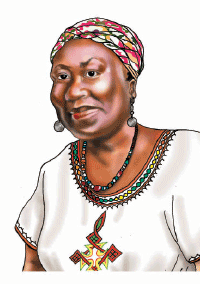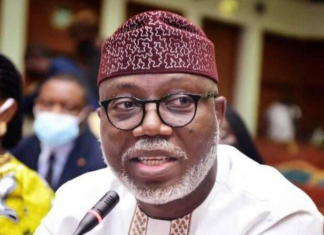Anomie. Noun. Lack of purpose, identity, or ethical values in a person or in a society; rootlessness.
These are very unsettling and somewhat surreal times we are living in, and one needs nerves of steel in order to maintain one’s poise and mental balance. Several disturbing incidents have assailed one’s mind these past few days and have almost engendered despair. Of course, top on the list must be the announcement late on Saturday night by the Chairman of INEC, Professor Attahiru Jega, postponing the elections by six weeks. Although it occasioned some serious critical reactions from within and outside the nation, with hindsight there had been clear indications pointing in that direction. One of the aspects of the postponement that really bothered me was the damage it would do to our international reputation. How come we find it so difficult to organize and conduct elections without almost setting the country ablaze? Several writers have pointed out that other countries which were actually engaged in wars have been able to conduct elections; why not us? We had four good years to prepare for these elections; now a week to them taking place we announce to the world that we have to give ourselves six more weeks so we can concentrate our efforts on fighting a group of insurgents which we have been battling for the past six years! People have equally noted that INEC’s insistence on its readiness to conduct the elections was misplaced, given the fact that millions of Nigerians were yet to collect their permanent voters’ cards. One clear conclusion in all of this mess is that Nigerians definitely need leaders who will deal with them with a greater sense of honesty and transparency in the conduct of their affairs.
As one of the presidential candidates myself, I had arrived in Abuja with my team earlier that Saturday evening, in anticipation of the presidential debates which were to be held the following day. The postponement of the elections was immediately followed by that of the presidential debates. The money thus wasted on flight tickets and hotel bills could have been put to good use in covering more ground in our campaign efforts. But then, who cares whether you lose money or not? You were meant to have loads of it anyway, weren’t you – otherwise, what business did you have putting yourself forward as a presidential candidate? I have found that expectation to be real and palpable, from practically all segments of society. No matter the group you were dealing with, you were expected to come loaded with money, except for the professional groups whose interest and motivation were certainly not pecuniary. There truly is great poverty in the land, and it is not limited to those who live on less than two dollars a day; many minds have equally been pauperized, for they have lost all sense of dignity and self-esteem. We have a great deal of work ahead of us as a nation in seeking to restore our lost values.
An unconnected matter has also contributed to one’s feeling of standing on quicksand. A group of university lecturers visited one of the schools in Osun State as part of a mentoring project being conducted for girls in secondary schools. The principal of one of the four schools within the compound spent time informing them about the confusion which was now reigning in the state’s public schools. With four different schools now found where just one school used to be, and with all the pupils wearing the same uniform, it has become impossible for teachers and principals to tell their own pupils apart from those of other schools. And the pupils are taking advantage of this confusion – of course, in a negative manner. If a teacher or principal saw some pupils misbehaving and wanted to correct or punish them, they were quick to point out that they did not belong to his or her school. The teachers are unable to tell anymore which students are theirs, and even the public which used to be able to make reports to the school authorities whenever they saw students in places where they were not supposed to be or at odd times are no longer able to do so. You cannot call up the principal of a public school anymore in Osun State and say: “I just saw three of your students in a beer parlour.” Discipline has thus completely broken down in the schools.
I had always been opposed to the “uniformization” of the school uniforms in Osun State public schools. Apart from the issues raised above, I felt that it was an unneeded intervention. School meals are needed, and so is the provision of text books, but not school uniforms. In general, parents manage to buy school uniforms for their children. They may not buy their books, but they managed somehow to get them uniforms. How many children do we see in schools who come in mufti for a whole term? No child would like to be the odd one out in the entire class, and no parent too would want to be identified as the one who fails to perform a duty as obvious as procuring their child’s school uniform. Why go and confuse a matter needlessly?
These and similar issues must keep Nigeria constantly on our minds. It’s time to reclaim and rebuild…













